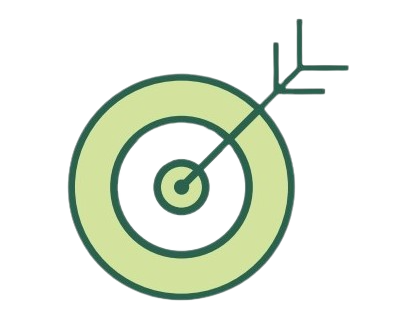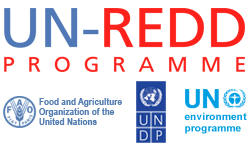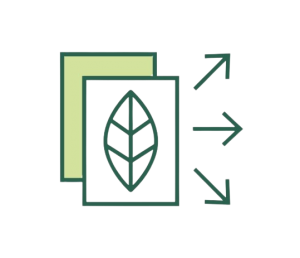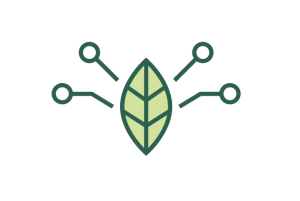
Results

2022 has seen unparalleled momentum for forest solutions to the climate and biodiversity crises. Kicked off shortly before the year started by the Glasgow Forest commitments, an unstoppable groundswell of attention and action has anchored forest protection and restoration squarely in the minds of decision-makers in politics and business: from UNEA 5.2. which delivered a universal definition of nature-based solutions, to the World Forestry Congress in Korea, the European Union’s regulation on deforestation-free trade and finally to the UNFCCC COP27, where the Forest & Climate Leaders’ Partnership and UN-REDD’s Making Good on the Glasgow Climate Pact paper were launched.
For UN-REDD, successfully moving from readiness to increased delivery for implementation will depend to a large extent on upscaled knowledge and capacity amongst REDD+ practitioners and decision-makers. In support of increased delivery of REDD+ readiness and implementation, the Programme is taking a new approach for improved Capacity Development and Knowledge Management (CDKM). It was developed to improve capacity development and knowledge management in terms of increased speed, quantity and quality. The approach acknowledges a universal value-adding role witnessed from breakthrough; suggests an accessible framework – The Breakthrough Passage – featuring key domains upon which breakthrough is based; and identifies game-change as a typical (value-adding) outcome. This was made necessary by several intertwined developments: the urgent need to pivot from an era of readiness to an era of massively scaled up financing, implementation and impact; the Programme’s and its partner countries’ significantly raised ambition to deliver climate action and contribute to the Paris Agreement and Glasgow Declaration; the urgency of action and results; frontier technologies that allow the use of previously impossible or costly tools; and, a renewed commitment by donors to the UN-REDD Programme, particularly CDKM. The latter is expressed by significant funding for 2023-2025 by Korea, Norway, Switzerland, and the United Kingdom.
The programme pivoted in 2022 towards an approach where (i) annual thematic priorities guide all outputs, (ii) CDKM outputs are connected, coherent and sequenced and (iii) UN-REDD’s CDKM work links to the knowledge of partners outside of the programme. The new approach builds on an intrinsically linked three-step knowledge journey, from knowledge generation to knowledge sharing and knowledge-based advocacy. In this knowledge value chain, not one step is more important than the other. It is their interconnectedness that enables the programme to deliver.
Building on the new approach, technical assistance in 2022 was supported by a number of cross-cutting knowledge management and communications activities, responding to needs of partner countries, communities of technical practice and wider forest solution constituencies. These activities also achieved wider reach by further elaborating global-level normative best practices, informed by real world experiences in the countries. Finally, as in 2021, a prime goal of UN-REDD’s knowledge management has been to support partner countries in their LEAF and ART-TREES journeys.
A flagship product, in support of social inclusion in of the implementation of forest solutions, was launched, in 2022: an analysis of Indigenous peoples rights and NDCs, prepared by Asia Indigenous Peoples Pact and Forest Peoples Programme. The four-part report was launched at a side event at the UN Climate Conference in Bonn in June, 2022 and further communicated through multimedia stories featuring Indigenous climate action and leadership.
To support capacity building on social inclusion in REDD+, UN-REDD convened training sessions and dialogues to connect social equity with REDD+ policy and finance, including a training for Indigenous peoples on Climate Finance during the UN Permanent Forum on Indigenous Issues in May, 2022 and a training on Climate Finance as a Catalyst for gender equality and women’s empowerment in the forest sector during the Committee on the Status of Women in March, 2022. UN-REDD also launched an info brief on carbon rights and the deep-dive comparative legal study on carbon rights this year.
Following the logic of the new approach, knowledge-based advocacy events were organized at the World Forestry Congress (WFC) and UNFCCC COP27. At the WFC, UN-REDD organized or participated in twelve sessions, from Global deforestation: challenges and opportunities for concrete action to halt and reverse forest loss by 2030, to a ministerial forum on finance. At WFC, UN-REDD also welcomed Korea as a donor, establishing a partnership to enhance implementation of REDD+ through capacity development and knowledge management.
A series of high-profile side events, including the launch of the paper, “Making Good on the Glasgow Climate Pact,” marked UN-REDD’s engagement at the UNFCCC COP27 in Sharm El- Sheikh. The paper, the associated campaign and high-level side event outlined the need and pathway for a milestone of 1 gigaton of Co2 reductions from forest emissions by 2025 (and every year thereafter) based on incentives (carbon price above $30, volume and predictability), upfront investments, high-integrity emissions reductions and inclusion of Indigenous peoples and local communities, as well as women and youth. The event, increasing access to forest carbon finance, with the United Kingdom, a leader on global forest finance who became a UN-REDD donor in 2022, positioned UN-REDD as a key source of support for countries to become REDD+ and LEAF-ready.
Also at COP 27, UN-REDD was featured at a side event, Harnessing carbon markets: a conversation with Women Leaders from Africa, where the critical role of women in forest sector climate action and carbon market participation and benefit distribution was explored.
In cooperation with partners, such as the Nature4Climate coalition and the World Economic Forum, UN-REDD continued to make the case for Nature-based Solutions, particularly forest solutions and jurisdictional REDD+, influencing the framing of several op-eds and articles, and providing interviews and media briefings.
UN-REDD collaborated with and supported various platforms and networks of Indigenous peoples on policy and finance dimensions of forest solutions, from NDC engagement to new finance streams such as carbon markets. They comprised the UN Forum on Indigenous Issues (UNPFII), the UNFCCC Local Communities & Indigenous Peoples Platform, the Asia Indigenous Peoples Pact (AIPP), the Forest Peoples Programme (FPP), and the Amazon Indigenous Federation (COICA). These collaborations and support were conducted through different avenues, such as public events, training programmes, publications and contributions through social media.
In response to the campaign by Indigenous peoples globally to raise questions and concerns on new finance developments in the REDD+ domain, such as carbon markets, UN-REDD organized the training and dialogue on carbon finance and the forest sector during the annual UN Indigenous Peoples Assembly, mentioned above. This saw the gathering together of experts, representatives from REDD+ financing schemes and Indigenous peoples themselves. More than 200 Indigenous representatives and development practitioners participated. The event was deemed successful by Indigenous peoples and thus further, similar efforts will be considered. This served also to coalesce and disseminate a rich package of information and knowledge products, made available to Indigenous leaders and practitioners.
UN-REDD continued its storytelling strategy of highlighting the key role of forests in the green recovery, featuring regional and global stories on national progress on REDD+, Indigenous approaches to forest monitoring, and local forest community empowerment, among others.
In the Lower Mekong region, a survey was conducted to understand the population’s knowledge and attitude toward forest crimes. The findings provided the scientific basis for communications campaigns in the Lower Mekong countries and China to trigger behavioral change, and ultimately, to reduce illegal logging and the illegal forest trade.
Strategic, event-driven social media campaigns, supported by social videos, increased the UN-REDD Programme’s social media following to more than 94,000 followers. The promotion of the messaging around the new Making Good on the Glasgow Climate Pact during COP 27 received over 1 million impressions.
The 2023 knowledge journey will focus on three strategic priority knowledge topics: REDD+ finance, social inclusion and deforestation-free supply chains and agriculture. These topics are in direct response to the knowledge and capacity needs of UN-REDD partner countries and build on the outcomes of the 2023 inception and the 6th UN-REDD Executive Board meeting. Knowledge on these three (and other) topics will be generated through a series of webinars and regional and global exchanges, continuously ensuring gender balance and inclusiveness. The knowledge gleaned from these events will be shared in a targeted manner, both regionally and globally. Throughout 2023, the knowledge generated will additionally serve to provide the content for the update and development of REDD+ Academy Learning Journals, as well as for the Switzerland-funded knowledge and advocacy partnership with the African Forest Forum. In addition, it will provide the basis for the Green Gigaton 2023-2025 advocacy campaign to deliver forest solutions at speed and at scale.

 KNOWLEDGE IS CAPTURED, MANAGED AND DISSEMINATED TO ACCELERATE CLIMATE ACTION.
KNOWLEDGE IS CAPTURED, MANAGED AND DISSEMINATED TO ACCELERATE CLIMATE ACTION. COLLECTIVE POLITICAL AND SOCIETAL SUPPORT TO NBS INCREASED
COLLECTIVE POLITICAL AND SOCIETAL SUPPORT TO NBS INCREASED DIGITAL COOPERATION AND FRONTIER TECHNOLOGIES DEPLOYED
DIGITAL COOPERATION AND FRONTIER TECHNOLOGIES DEPLOYED